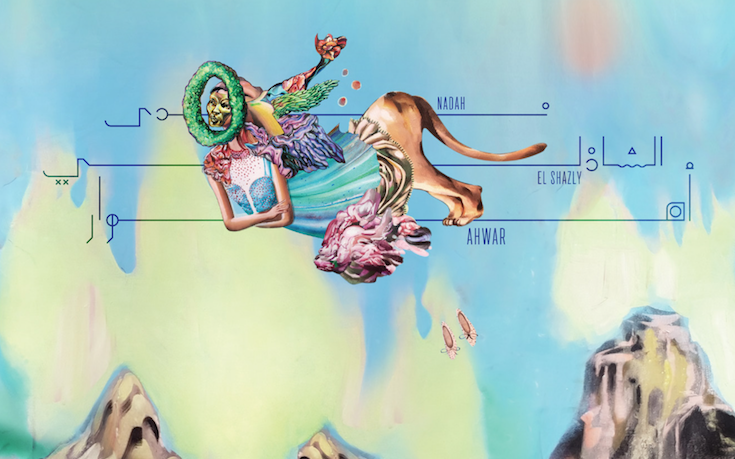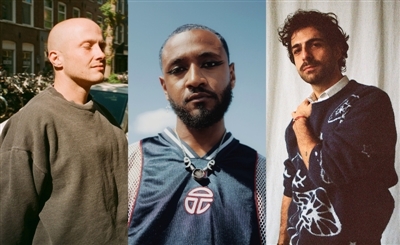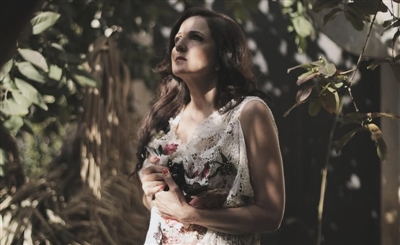Album Review: Nadah El Shazly's Debut Album Ahwar brings Arabian Folklore into Neo-Psychedelia
Perk up your ears and fire up them sound systems, Nadah El Shazly's long awaited debut album is about to be released - we were given permission to have a sneak listen, here is the low down.

Nadah El Shazly’s long awaited debut album Ahwar is about to drop next November 10th on Nawa Recordings and being the intermingling, hyper connected species we are, we managed to get a full listen prior to its scheduled release. Two years in the making, the album is an otherworldly experience of experimental music blended with undeniable folkloric influences. This album is a defining statement for Nada’s musical coming of age, a unique placement within the underground of our region and beyond.
Produced between Egypt and Canada, assisted by The Dwarfs of East Agouza’s Maurice Louca and Sam Shalabi as co-composers - with mastering and mix down honours retained by her accomplices in Canada - the album is a complete package that shows an uncanny attention to detail. It features artwork and a booklet made by Egyptian surrealist Marwan El-Gamal, and custom typography from Egyptian designer Valerie Arif.
The six-tracks consist of five original compositions and an abstract cover of Sayyid Darwish’s Ana 'Ishiqt (I Once Loved). The original compositions seem entirely independent of each other, showing individual themes and methods.
The opening track starts out with screeching vocals reciting its title over an instrument that walks a fine line between a cello and a didgeridoo. Lyrical themes of drowning and time travel continue over the same mystery instrument accompanied by subtle percussions and intermittent guitar strings. The track's name Afqid Adh-Dhakira literally translates into I lose memory - go figure.The second track, with lyrics written in full classical Arabic, features another instrument that is hard to pin down, carrying attributes of a oud that is being played to sound like a sitar. Much like the track before - although the underlying notes vary - it is united in theme by the obscure name - this time Barzakh translates to a separating divide, in some cultures it is the void souls meet in after they leave this life, prior to moving on to the next. Halfway through the track Nadah begins to introduce beats that completely transform the feel of the song. She pursues a wider vocal range from that point onwards, and a hauntingly deep voiced acappella continues uninterrupted through the track’s final minute.
Named after Syria’s ancient city of Palmyra, this third piece seems to draw inspiration from the modern day aesthetic of Syrian folklore music and regional mawaweel. The song encompasses traditionally used melodies and percussions with a purely electronic break halfway through. All the elements combine as the track progresses and builds up in intensity prior to peeling off into a progressive cut off.
Three tracks remain, the fourth track is the reinterpretation of Sayed Darwish's Ana Ishiqt. Think of Sheikh Sayed as a girl who is very fond of kalimba and likes to process her her harp sounds through an arpeggiator, or multiple effects pedals. It's old meets new, classic Egyptian folklore fused with bouts of neo-psychedelic experimentations - the highlight of this album in our humble opinion. The remaining two tracks Koala and Mahmiya (protectorate) are equally bemusing as the rest of the release. The album will be available for purchase on vinyl and digitally on November 10th, however you can pre-order here.
Follow Nadah on Facebook for more updates and head to her Soundcloud for more music.
- Previous Article Getting Abyusif
- Next Article The Wanton Bishops on the Manifestation of Success, Arabs on Drugs, and Saving Rock and Roll
Trending This Month
-
Jul 07, 2025
-
Jun 18, 2025






















